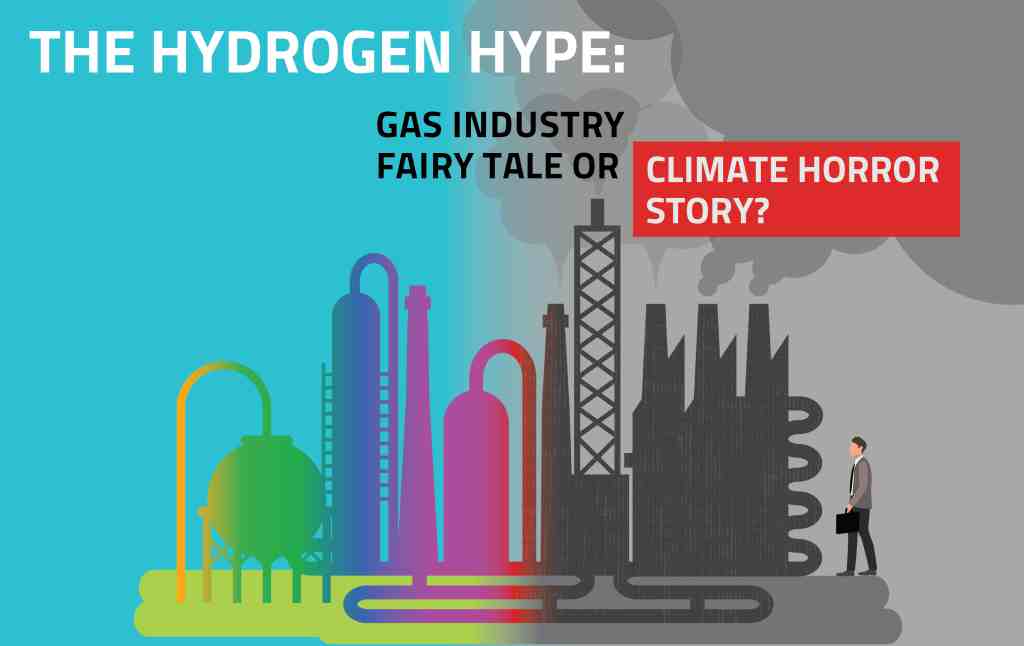For a few months, we have seen how the offensive to recover energy storage in the form of hydrogen has experienced a massive boost as a result of the impact of the pandemic and, above all, in the heat of the enormous recovery funds that will seek a more “greenway out” in the energy aspect. A combination that has attracted the oil and gas industry found in the green hydrogen mantra a door to maintain its current business, extend its validity, and gain good billions of public funds.
This is indicated in the latest report by the Corporate Europe Observatory (CEO) research group, which has published a devastating report that puts on the table the dangers of Europe’s commitment to green hydrogen, which is being capitalized mainly by the fuel industry fossils.
According to those responsible for the study, the European Hydrogen Strategy announced by the European Commission in July is a “Trojan horse” of the gas industry that managed to secure the massive capture of public funds for new investments. That is one of the conclusions of a new research report entitled “The Hydrogen Boom: Gas Industry Fairy Tale or Climate Terror Story ?” based on an analysis of more than 200 documents from the European Commission obtained through public mechanisms made available by the European body.
The study indicates that the oil and gas industry has created a powerful lobby group dedicated to influencing the European Commission’s leaders’ decisions. All with the aim that “the gas industry ensures a lucrative future, which represents a danger to the climate, as well as to the communities and ecosystems affected by fossil fuel extractivist.”
The report also maintains that the hydrogen lobby, whose leading players are gas companies, has declared an annual expenditure of 58.6 million euros to influence Brussels’ formulation of policies. However, the real figure is suspected much older.
One of the most obvious signs of the practices that this lobby is doing are revolving doors. This is how the report describes the high number of personnel that have become part of initiatives such as Hydrogen Europe and the Hydrogen Council, two of the main pressure groups responsible for creating the hydrogen boom, and that in addition to attracting personnel within The EU is financed by the consulting firm FTI Consulting. The same company accused in the United States of creating false social organizations in favor of fossil fuels on behalf of the oil and gas industry.
Many ask themselves up to this point: What problem is there with the fuel industry focusing on hydrogen production? An energy vector that could help decarbonize sectors such as heavy transport.
The answer is that according to the CEO’s report, their support does not seek to decarbonize the sector but to take advantage of investments to maintain their current business model with gas. And it is that although green hydrogen is the objective, the reality is that in the short and medium-term, almost all of the hydrogen itself will have its origin in fossil fuels. This will allow the industry, mainly gas, to perpetuate its system under the EU’s financial and legal protection. As an example, the current production of hydrogen does not reach a rate of 0.1% from renewable or low-emission sources, which in practice will mean that during the next decades, we will continue to produce most of it with gas.
To this it can be added that according to the report, “‘green hydrogen will come in 50% of Ukraine and North Africa, continuing the neocolonial relationship that has characterized the EU’s energy policy until today, extracting resources leaving behind the political, social, and environmental impacts”.
The conclusion of the study indicates that if we want to make a real environmental transition, we cannot bet on technologies such as the capture of emissions or green hydrogen that have not yet proven to have the capacity to become an alternative in the short or medium term, which will perpetuate the influence and problems of continuing to depend on the fossil fuel industry, which will also weigh down Europe’s energy competitiveness.

